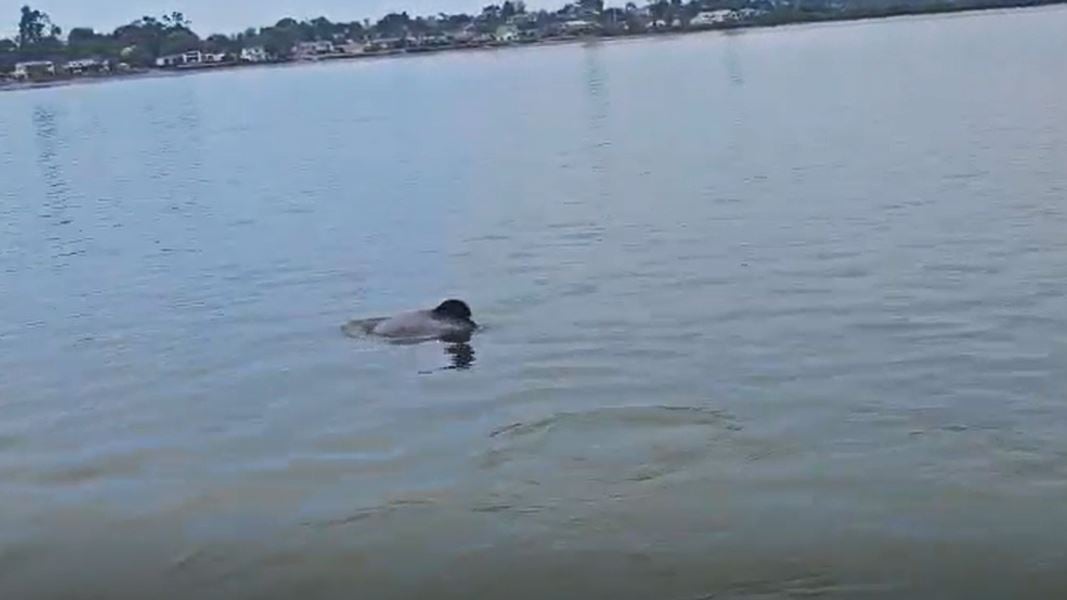Archived content: This media release was accurate on the date of publication.
Date: 11 December 2024
DOC Marine District Operations Manager Kirsty Prior says it’s likely to be a Hector’s dolphin, but it could also be a critically endangered Māui dolphin.
“The dolphin was seen early this morning in the Waitematā Harbour. The sighting was made by a rowing team during their training session. Later, one of the rowers returned with her dad around 11 am and saw the dolphin again.”
Kirsty says it’s very unusual to see a Hector’s dolphin this far north of the east coast of the North Island, and Māui dolphins have only been found on the west coast.
“However we do get occasional reports, most recently in October 2023 when an adult and juvenile were sighted in the Firth of Thames.”
She says giving the dolphin space is crucial for its well-being.
“If you come across the dolphin, please provide it plenty of space, especially from powered vessels, and don’t fly drones over it.”
Upokohue/Hector’s dolphins are a taonga species and nationally vulnerable, with a population of about 15,700, mostly found around the South Island’s coastline.
They are only found in New Zealand and are one of the world’s smallest dolphins, about 1.5 m long.
“Hector’s dolphins, and the closely related Māui dolphin, have a distinctive rounded dorsal fin that looks like one of Mickey Mouse’s ears. They have grey, white and black markings on their bodies.”
“Our team is keeping a close eye on the area and hopes to collect a DNA sample to confirm the species and support vital conservation efforts,” says Kirsty.
Unusual sightings like Hector’s or Maui dolphins in the Upper North Island, or entangled, stranded or dead marine mammals, should be immediately reported to 0800 DOC HOT (0800 362 468).
The public are encouraged to report other marine mammal sightings through the marine mammal sightings form on the DOC website.
Background information
If you're travelling at sea near marine mammals:
- travel no faster than idle or 'no wake' speed within 300 m
- make sure there are no more than three vessels within 300 m, including any aircraft
- approach from a direction that is parallel and slightly to the rear
- do not circle the marine mammals, obstruct their path or cut through any groups
- idle slowly away.
Contact
For media enquiries contact:
Email: media@doc.govt.nz
